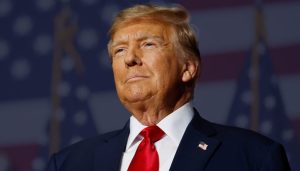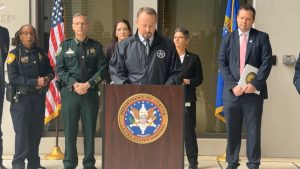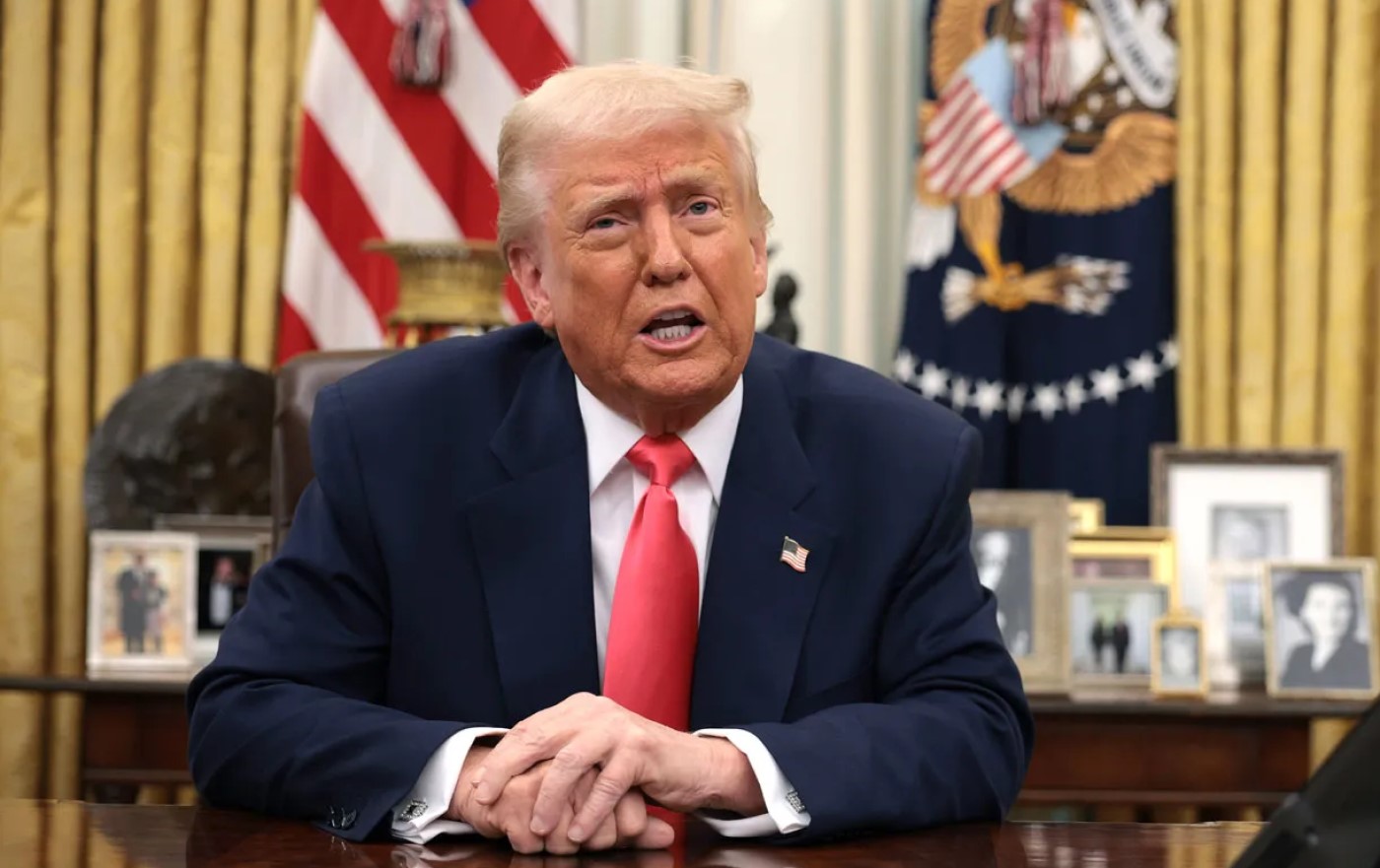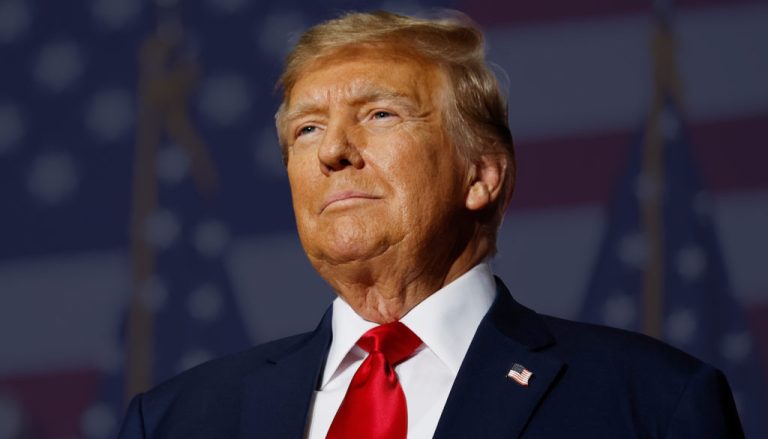On September 10, 2025, the political landscape of the United States was shaken to its core following the tragic death of Charlie Kirk, the 31-year-old co-founder of Turning Point USA. Kirk was fatally shot while speaking at Utah Valley University in Orem, Utah, in an attack that has already been described as one of the most significant acts of political violence in recent American history. The incident has triggered an outpouring of grief across the political spectrum, renewed conversations about political violence, and raised troubling questions about the future of civic discourse in America.
The Shooting at Utah Valley University
According to law enforcement officials, the shooting took place at approximately 12:10 p.m. local time. Kirk had been invited by the university’s student chapter of Turning Point USA to speak at a midday event attended by hundreds of students and community members. Eyewitness accounts and video evidence show that Kirk was engaged in a Q&A session when shots rang out from a building located roughly 200 yards from the event space. The bullet struck Kirk in the neck, prompting immediate panic as attendees fled for cover.
Kirk’s security detail swiftly evacuated him from the stage, but despite emergency medical efforts, he succumbed to his injuries later that afternoon. The suspect, reportedly taken into custody shortly after the incident, has yet to be publicly identified, and authorities have not released information regarding a possible motive.
The Immediate Reaction
The news of Kirk’s death spread quickly, with former President Donald Trump among the first to confirm it publicly via his Truth Social account. Trump, who had long been one of Kirk’s most influential allies, described him as “The Great, and even Legendary, Charlie Kirk,” adding that “no one understood or had the Heart of the Youth in the United States of America better than Charlie.” Trump’s statement reflected the closeness of their relationship, with Kirk having played a pivotal role in mobilizing young conservatives in support of Trump’s political agenda.
Support and condolences poured in across party lines. Vice President J.D. Vance called Kirk “a genuinely good guy and a young father,” while Democratic leaders including California Governor Gavin Newsom and Pennsylvania Governor Josh Shapiro condemned the attack as “vile, reprehensible, and horrifying.” Former Vice President Kamala Harris echoed these sentiments, noting that the country must work collectively to prevent such tragedies from fueling more violence.
A Polarizing but Influential Figure
Charlie Kirk’s career began in 2012, when he founded Turning Point USA at the age of just 18. What started as a grassroots organization quickly grew into one of the most influential conservative youth movements in the country. Through campus events, social media campaigns, and high-profile speaking engagements, Kirk became a household name in conservative politics.
A vocal supporter of Donald Trump, Kirk leveraged his platform to promote conservative values, critique progressive ideologies, and champion causes such as free speech on college campuses. His detractors often criticized him for inflammatory rhetoric and combative debate style, but even his critics acknowledged his impact in shaping political discourse among young Americans.
Kirk’s rise was emblematic of a new wave of conservative influencers who built their careers outside traditional political structures. With millions of followers across social media platforms, he was adept at speaking directly to the younger generation, often bypassing mainstream media outlets altogether.
The Growing Threat of Political Violence
The death of Charlie Kirk has revived national concerns about the escalation of political violence in the United States. Over the past decade, heated rhetoric, hyper-partisanship, and the amplification of political disputes online have all contributed to a volatile environment. From the shooting of Republican Congressman Steve Scalise in 2017 to the January 6 Capitol attack in 2021, political violence has increasingly become a part of the American reality.
Leaders from both sides of the aisle have urged calm in the wake of Kirk’s killing. Governor Newsom stated unequivocally that “we must reject political violence in EVERY form,” while Maryland Governor Wes Moore warned that “political violence is never acceptable. Ever.” Despite these calls, many worry that the tragedy may deepen existing divisions and embolden extremists on both ends of the political spectrum.
The Human Toll
Beyond the political ramifications, Kirk’s death is a deeply personal tragedy. He leaves behind his wife, Erika, and their young family. Friends and colleagues have described Kirk as someone who worked tirelessly to advance his vision for the country, while also balancing his commitment to his family and faith.
Secretary of War Pete Hegseth, a close ally, reflected on Kirk’s passing with a message of faith: “Prayers for Charlie Kirk. An incredible Christian, American, and human being. May the healing hand of Jesus Christ be upon him.” Such tributes underscore the profound loss felt not only by political allies but also by the broader community of supporters who saw Kirk as a role model.
What Comes Next
The coming days and weeks will be critical as the investigation unfolds. Law enforcement officials will work to determine the motive behind the shooting and whether the suspect acted alone. Meanwhile, politicians, activists, and media figures will continue to grapple with the broader implications of the attack.
There are likely to be renewed debates over campus security, the role of political rhetoric, and the balance between free speech and public safety at universities. Already, Utah Valley University has announced that it will review its security protocols for guest speakers. Nationally, there will also be increased scrutiny of how political organizations approach public events in an era of rising hostility.
A Moment for Reflection
Charlie Kirk’s death is more than just a tragic loss for his family and supporters; it is a sobering moment for the nation. It highlights the dangerous trajectory of American political discourse and the urgent need for de-escalation. While Kirk’s political positions were often divisive, his assassination is a stark reminder that violence against political figures—regardless of their beliefs—threatens the very foundations of democracy.
For now, the United States mourns a man whose life was cut tragically short. In the words of Donald Trump, “Charlie, we love you!” Whether one agreed with Kirk’s politics or not, his death represents a moment of reckoning for a country that must decide how to move forward in the face of rising violence and deepening division.

James Jenkins is a celebrated Pulitzer Prize-winning author whose work has reshaped the way readers think about social justice and human rights in America. Raised in Atlanta, Georgia, James grew up in a community that instilled in him both resilience and a strong sense of responsibility toward others. After studying political science and creative writing at Howard University, he worked as a journalist covering civil rights issues before dedicating himself fully to fiction. His novels are known for their sharp, empathetic portraits of marginalized communities and for weaving personal stories with broader political realities. Jenkins’s breakout novel, Shadows of Freedom, won national acclaim for its unflinching look at systemic inequality, while his more recent works explore themes of identity, resilience, and the fight for dignity in the face of oppression. Beyond his novels, James is an active public speaker, lecturing at universities and participating in nonprofit initiatives that support literacy and community empowerment. He believes that storytelling is a way to preserve history and inspire change. When not writing, James enjoys jazz music, mentoring young writers, and traveling with his family to explore cultures and stories around the world.









